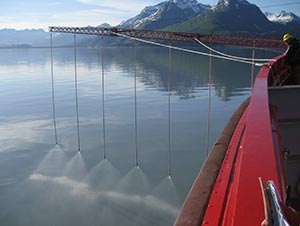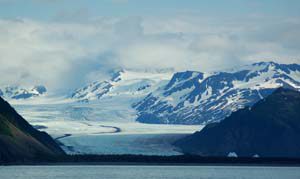
The Council’s Board of Directors met in Anchorage on January 26 and 27, 2023.
Final agenda and meeting materials: Board of Directors Meeting, January 2023
The Council conducted regular business during the meeting, including updates from Council ex officio members, staff, and committees. Other topics included on the agenda were:
- An activity report by Alyeska Pipeline Service Company on the Valdez Marine Terminal and Ship Escort Response Vessel System operations.
- An update on State of Alaska Article 4 oil discharge prevention and contingency plan regulations from the Alaska Department of Environmental Conservation’s Spill Prevention and Response Division Director Tiffany Larson.
- A report on how to evaluate the integrity of liners integral to the effectiveness of the secondary containment systems around the tanks at the Valdez Marine Terminal; the liners are intended to hold oil in the event of a spill until clean up can occur.
- A report on data analyzed from Council weather buoys in Port Valdez from 2019-2021.
- An update and discussion on changes proposed by the Alaska Regional Response Team to the Regional Stakeholder Committee process during an oil spill.
- A presentation on aerial forage fish surveys conducted in Prince William Sound in June of 2022.
- A review of materials created to support the Council’s dispersant use position, updated in September 2022.
- A summary by Council staff of incidents (e.g., oil spills, fires, malfunctions causing shutdowns, navigational closures, tanker/escort incidents) at the terminal, on Ship Escort Response Vessel System tugs and barges or on associated tankers that occurred in 2022.
- The appointment of new representatives to the Cordova District Fisherman United and City of Cordova seats, as well as creation and appointment of a temporary recreation seat on the Council’s board of directors.
Council board meetings are routinely recorded and may be disseminated to the public by the Council or by the news media.

 The Council’s Board of Directors met in Seward on September 22 and 23, 2022.
The Council’s Board of Directors met in Seward on September 22 and 23, 2022.